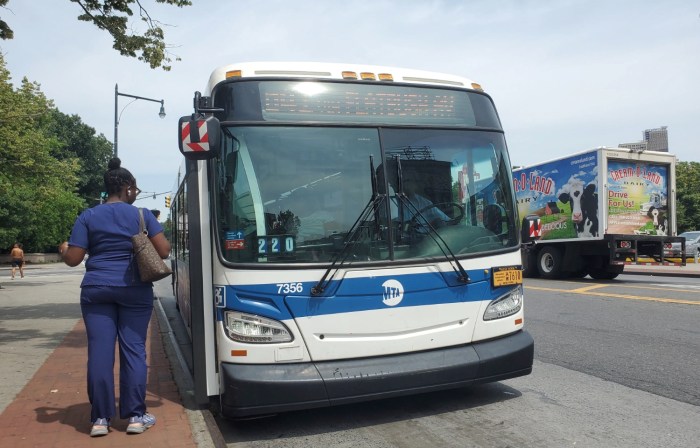By The TimesLedger
Congratulations to the administrators, teachers and, most of all, to the students at The William Haberle School, PS 195, in Rosedale and PS 96 in Ozone Park for being among the 24 schools to win the 2002 Pathfinder Award from the Business Council of New York State.
This honor is particularly noteworthy because it recognizes those schools that have shown the greatest academic improvement in the past school year. There may be schools in Queens with higher scores. There are no schools that have come further.
The Pathfinder Award is given to a school that shows greater improvement over its track record from the previous year than any other school in its region. At least half of the students at the school have to meet or exceed the state’s standards on the fourth-grade English Language Arts and math tests.
This accomplishment is all the more remarkable when one considers the challenges faced by administrators and teachers in the city’s public school system. Virtually every school in Queens is overcrowded and understaffed. Teachers are underpaid and, more often than not, do not have the basic supplies they need.
Parents of children attending PS 195 and PS 96 should take pride in knowing that their children were given the basic reading math skills that will be the foundation for their academic success.
The kids should take pride in knowing that they are standing shoulder to shoulder with students attending schools throughout the state. It cannot be quantified, but nevertheless we hope that these children have been given a love for learning and a self-confidence that will empower them for the rest of their lives. If that’s the case, they are truly winners.
Editorial: Civil rights 2002
A panel discussion on civil rights involving three of the nation’s most prominent African-American leaders at St. John’s University showed how complex issues that once seemed so simple have become. The panelists invited by the St. John’s Black Law Students Association included the Rev. Al Sharpton, the Rev. Floyd Flake and Julian Bond, the chairman of the NAACP.
Take busing, for example. There was a time when the value of busing was gospel among civil rights leaders. But the panelists at St. John’s agreed that busing had fallen out of favor because the buses took black children to white neighborhoods but seldom brought white children to black neighborhoods. If their schools were better and their neighborhoods safer, no one — not even the panelists — could fault parents for not wanting to bus their children to the “inner city.”
At times the panelists seemed mired in a web of contradicting facts and theories. They decried the fact that schools tended to be better in the suburbs and then they decried the fact that the gentry was moving from the suburbs to the inner city and driving lower-income blacks to the suburbs.
Although the organizers of this symposium did their best to avoid a discomforting diversity, Rev. Flake did challenge some of the concepts long held by many civil rights activists. He suggested that the gap in today’s society is more economic than racial. Flake should know. He is the leader of one of the largest, wealthiest and most influential churches in all of New York City. Flake has bettered the lives of thousands of people living in southeast Queens. He has built schools, day-care centers and nursing homes and has helped hundreds of families buy affordable housing. There is much that Sharpton can learn from him, but it is not likely that he will.


































